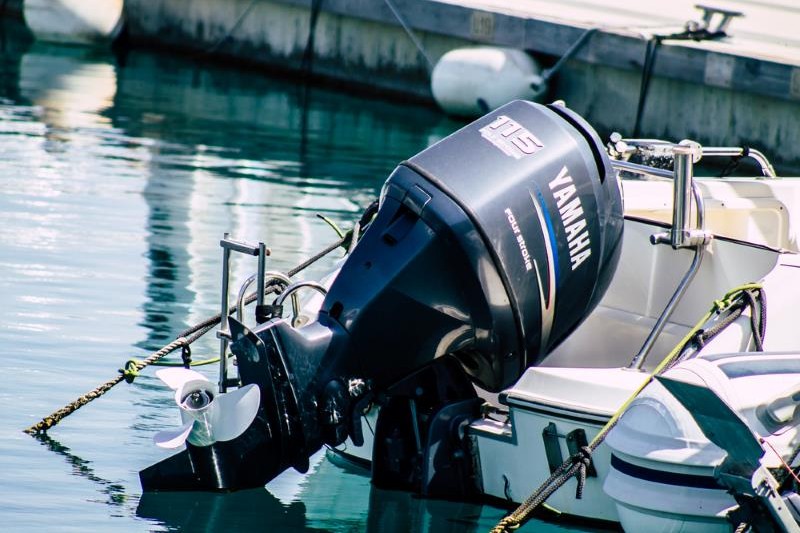The Boat Stop is temporarily pausing operation and is no longer accepting any new transactions.

If you see two boats for sale and are considering which to choose, the decision may ultimately come down to whether the boat has an inboard or an outboard motor. But what are the differences between the two, and which is better? Each type has its own advantages and disadvantages, and the choice ultimately depends on the type of boat, its intended use, and personal preferences. In this blog post, we’ll explore the pros and cons of inboard and outboard motors on boats.
Inboard motors are typically larger, more powerful, and installed within the boat's hull. They are designed to provide more power and speed than outboard motors, making them a popular choice for larger boats, such as cabin cruisers, yachts, and commercial vessels.
Power: Inboard motors can deliver more power and speed than outboard motors. They also provide better maneuverability on larger boats, making them ideal for larger boats and rough waters.
Fuel Efficiency: Inboard motors are more fuel-efficient than outboard motors. They use less fuel to generate the same amount of power, making them an ideal choice for longer trips.
Smooth Ride: Inboard motors are installed within the boat's hull, which provides a smoother ride than an outboard motor. They also reduce the amount of spray that enters the boat, resulting in a more comfortable and dry ride.
Maintenance: Inboard motors require more maintenance than outboard motors. They are more complicated to install and maintain, requiring regular oil changes, filter replacements, and winterization.
Limited Access: Inboard motors are installed within the boat's hull, making them less accessible than outboard motors. This can make repairs and maintenance more challenging and time-consuming.
Cost: Inboard motors are typically more expensive than outboard motors. They require more installation and maintenance work, which can increase the overall cost of the boat.
Outboard motors are mounted on the transom of the boat and are designed to provide good power and maneuverability for smaller boats, such as fishing boats, runabouts, and personal watercraft.
Easy to Install: Outboard motors are easy to install and remove, making them ideal for smaller boats that need to be transported. They also require less maintenance than inboard motors.
Maneuverability: Outboard motors are designed to provide excellent maneuverability. They can be tilted and turned in any direction, making them ideal for fishing, water skiing, and other recreational activities.
Cost: Outboard motors are typically less expensive than inboard motors. They are also easier to repair and maintain, which can save you money in the long run.
Weight: Outboard motors are typically lighter than inboard motors. This can help improve the overall weight distribution of the boat, resulting in better performance and fuel efficiency.
Noise: Outboard motors are typically noisier than inboard motors. They also produce more vibration, which can be uncomfortable for passengers.
Exposure to the Elements: Outboard motors are exposed to the elements, which can result in more wear and tear. They are also more vulnerable to damage from rocks, debris, and other obstacles in the water.
Limited Power: Outboard motors are typically less powerful than inboard motors. They are designed for smaller boats and may not be sufficient for larger boats or rough waters.
Reduced Space: Outboard motors can take up valuable deck space on smaller boats. This can limit the amount of storage and seating available and can make the boat feel more crowded.
In summary, both inboard and outboard motors have their pros and cons. Inboard motors typically offer more power and fuel efficiency, but they are also more expensive and require more maintenance. Outboard motors are less expensive and easier to maintain, but they may not provide enough power on larger boats. Regardless of the type of engine, you can find your next boat at The Boat Stop!
The Boat Stop offers a terrific inventory of new and used boats for sale with new listings being added every day. If you’re looking to sell a boat as well, we can handle that too. The Boat Stop offers fully-loaded listings at a competitive price to help you sell your boat. Check it out today at theboatstop.com.